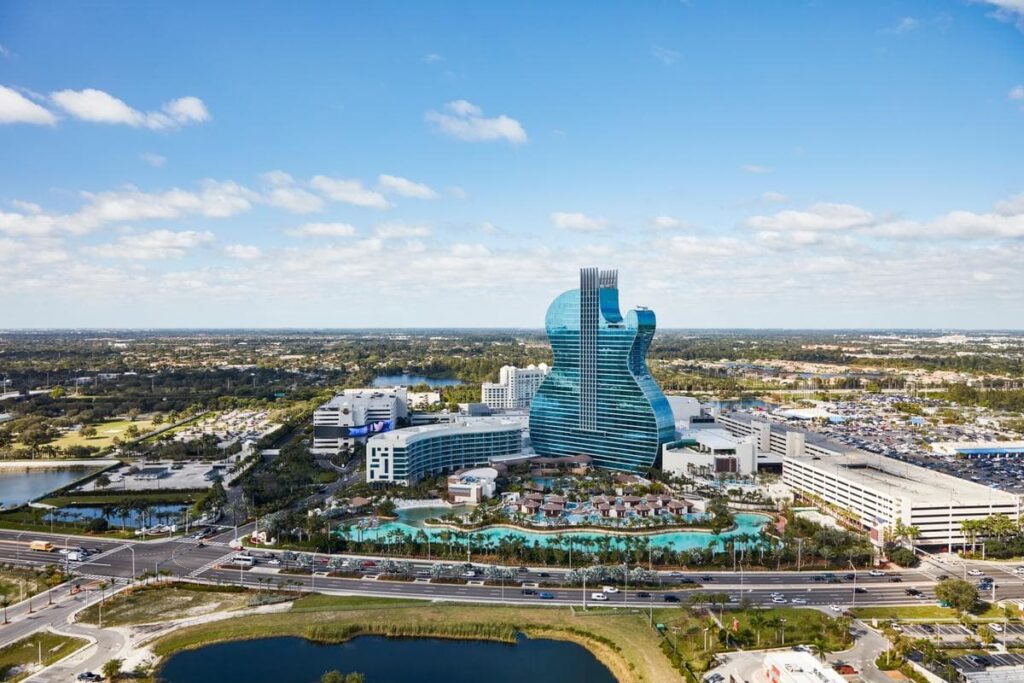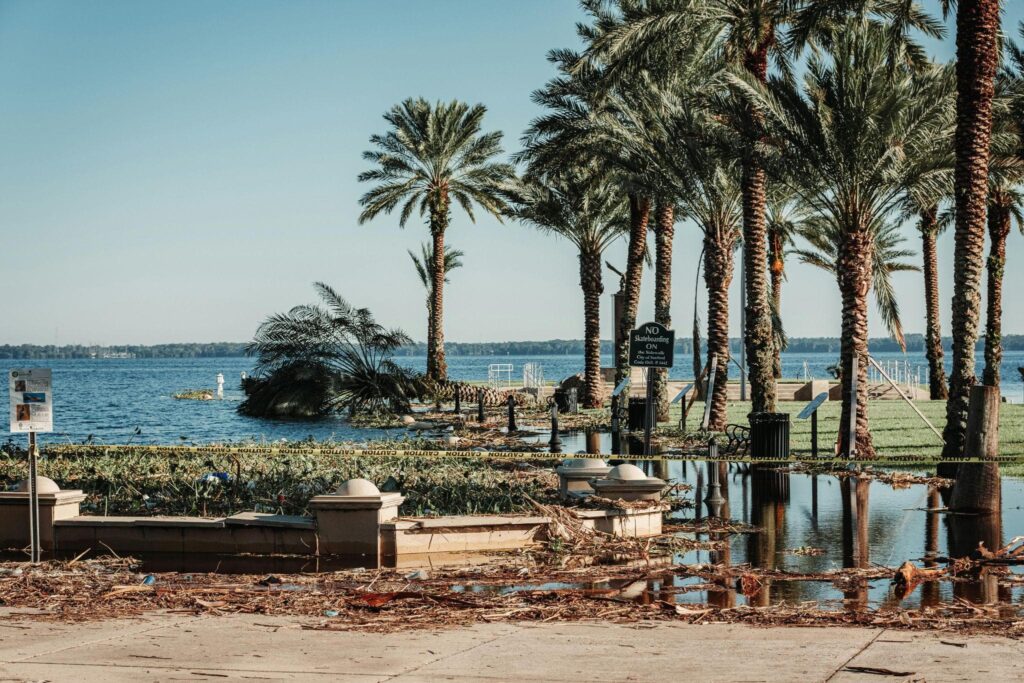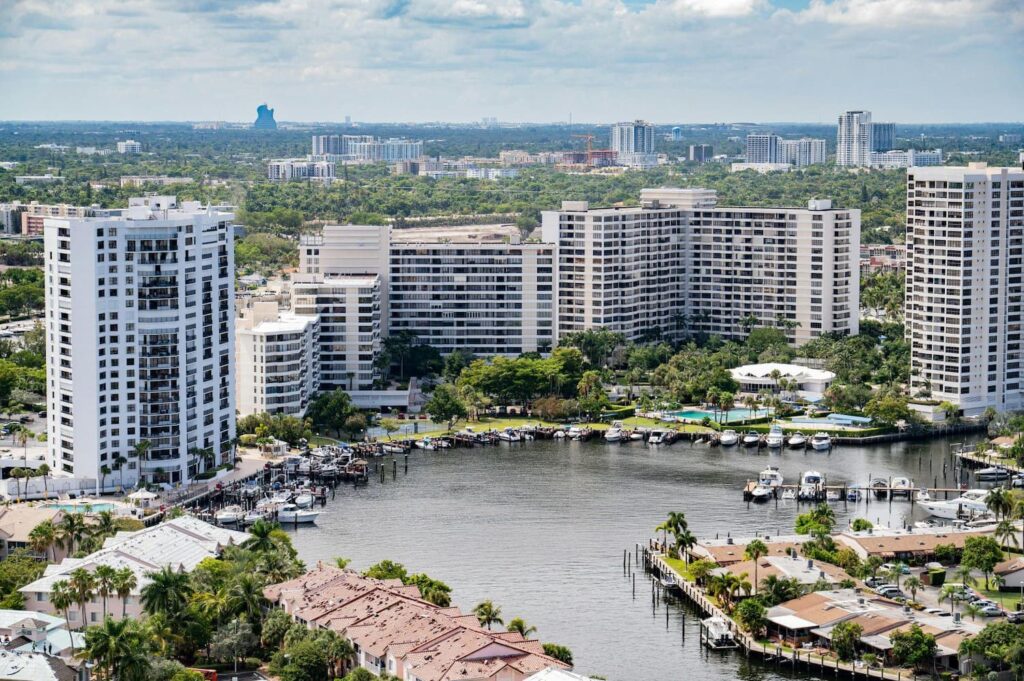Florida, with its stunning coastlines and vibrant communities, is no stranger to the raw power of hurricanes. Every year, as storm season approaches, residents brace themselves, making preparations, securing their homes, and often evacuating their areas. What might surprise many is the unlikely role some of the state’s most prominent entertainment venues—its casinos—have begun to play during these harrowing times. Forget the flashing lights and the allure of UAE online blackjack tables for a moment. When a major storm bears down, these establishments, usually bustling with leisure and excitement, often transform into critical lifelines, offering shelter and vital aid to staff, locals, and even first responders. It’s a remarkable shift in purpose, illustrating a compelling narrative of corporate responsibility meeting urgent community needs, subtly redefining what we perceive as a casino’s primary function. These aren’t just places for games; they’ve become unexpected bastions of hope when the skies darken, and the winds howl, demonstrating a profound commitment to the communities they serve.
The Unconventional Shelters: Casinos as Havens
When a hurricane is approaching, the immediate need is for a safe and secure shelter. While schools and community centers often fill this role, Florida’s casinos present a surprisingly robust solution. Think about it: these aren’t flimsy structures. They are typically built to incredibly high standards and designed to withstand significant forces, including high winds and even seismic activity in some regions. Their sheer size is another undeniable advantage, offering vast indoor spaces that can accommodate hundreds, sometimes thousands, of people.
But it’s not just about space and structural integrity. Casinos come equipped with an infrastructure that many traditional shelters can’t match. They often have sophisticated, redundant power generation capabilities, ensuring that lights stay on, air conditioning continues to run, and critical medical equipment remains functional, even when the rest of the grid goes dark. Imagine the relief of stepping into a brightly lit, climate-controlled environment when your own home is without power, potentially for days. They also boast extensive parking facilities, crucial for evacuees arriving in their vehicles, burdened with what little they could carry.
Beyond the basics, casinos are inherently designed for hospitality. They have massive kitchens, often operational 24/7, capable of producing thousands of meals on short notice. They have plumbing systems, ample restrooms, and usually even on-site medical facilities or staff trained in emergency response. When a casino becomes a state-designated shelter, this existing infrastructure can be quickly repurposed for emergency services. The coordination required is immense, involving local emergency management agencies, the Red Cross, and other humanitarian organizations. It’s a complex dance of logistics, but one that has proven remarkably effective in providing a haven during the storm’s fury. What other commercial entity possesses such a unique blend of resources, ready to be deployed at a moment’s notice?
Case Study: Seminole Hard Rock Hotel & Casino Tampa and Hurricanes Helene and Milton

Consider the exemplary response of the Seminole Hard Rock Hotel & Casino Tampa during Hurricanes Helene and Milton. This wasn’t just a matter of opening doors; it was a comprehensive humanitarian effort that truly showcased the “lifeline” aspect. As both storms threatened, the casino’s massive Event Center, usually reserved for concerts and conferences, was swiftly transformed. Over 1,000 displaced individuals found refuge within its walls, a testament to the facility’s capacity and the management’s foresight.
But the provision of shelter was just the beginning. Imagine being an evacuee, worried about your home and family, and then receiving a hot, nutritious meal. Organizations like World Central Kitchen played a crucial role, preparing over 700 meals directly on-site ensuring that those in the shelter were well-fed. Beyond that, the dedicated casino team didn’t just serve their internal guests; they extended their reach, preparing and delivering over 1,000 additional meals to other shelters in the community, truly demonstrating a commitment beyond their immediate perimeter.
Medical care was another critical component. With so many people under one roof, basic first aid and, in some cases, more advanced medical attention were essential. The Hard Rock facilitated access to necessary medical resources, ensuring that health concerns didn’t compound the distress of the storm. The entire environment was carefully managed to provide security and order, creating a stable space amidst chaos. This was a finely tuned operation, requiring seamless collaborative efforts with state and local authorities, whose planning and support were instrumental in making the Hard Rock a haven.
Furthermore, the commitment went beyond operational support. The Seminole Tribe of Florida and Hard Rock International made a significant $1 million donation to relief efforts. This financial contribution underscored their deep-rooted dedication to the community’s recovery, illustrating a holistic approach to disaster aid that extends far beyond the immediate crisis. This isn’t just charity; it’s a profound act of solidarity.
Beyond Shelter: Comprehensive Aid and Community Support
While providing safe shelter is a monumental undertaking, Florida casinos’ contributions during hurricane crises often extend far beyond simply housing evacuees. Their role as community pillars truly shines through in the comprehensive aid they offer. It’s not just about a roof over heads; it’s about rebuilding lives and supporting the broader recovery effort.
Many casinos make significant monetary donations to prominent relief organizations, such as the American Red Cross and World Central Kitchen. These contributions provide crucial funding that enables these organizations to deploy resources, purchase necessary supplies, and offer direct assistance to those most in need. Think of it as leveraging their financial capacity to amplify the humanitarian response. Beyond cash, casinos also contribute substantial in-kind donations of supplies. This can range from fresh linens and toiletries from their hotel inventories to bottled water, non-perishable food items, and even generators or construction materials once the immediate crisis has passed. These tangible donations address immediate needs and support longer-term recovery efforts.
Furthermore, the mobilization of staff as volunteers is a powerful testament to their commitment. Casino employees, often deeply rooted in the local community themselves, frequently step up to assist. They might help distribute aid, manage shelter operations, or participate in clean-up efforts once it’s safe to do so. This personal involvement adds a crucial human element to the corporate response. These casinos also engage in longer-term recovery efforts, recognizing that the aftermath of a hurricane can last for months or even years. This may involve sponsoring rebuilding initiatives, hosting fundraising events, or providing ongoing support to local businesses and families who are struggling to get back on their feet. Their sustained involvement ensures that communities don’t feel abandoned once the immediate threat subsides.
The economic impact of such aid is often underestimated. By providing shelter, food, and supplies, casinos alleviate the burden on public resources and emergency services. Their contributions also stimulate local economies during recovery periods, providing jobs and supporting local suppliers. It’s a multi-layered approach that creates a ripple effect of positive change. When a casino becomes a staging ground for relief, it’s not just saving lives; it’s also helping to knit the community’s fabric back together.

Supporting Staff and First Responders
In the chaos of a hurricane, two groups are especially critical: the casino’s staff and the tireless first responders. Florida casinos often extend their protective embrace to both, recognizing that their well-being is paramount to effective crisis management and recovery.
For their employees, casinos typically go above and beyond to ensure their safety and stability. This might involve providing on-site accommodation for staff and their families before, during, and after a storm, especially for those whose homes are in vulnerable areas or who need to remain on duty. Imagine the peace of mind that comes with knowing your loved ones are safe while you work to keep others secure. Meals, fresh water, and access to necessities are routinely provided, removing the burden of worrying about personal provisions during a crisis. Some casinos even offer financial assistance or mental health support, acknowledging the immense stress that natural disasters impose on individuals. This internal support network is not just good corporate practice; it’s essential for maintaining morale and operational capacity when it matters most.
Equally vital is the support extended to first responders. These heroes – firefighters, police officers, paramedics, and utility workers – are on the front lines, often working around the clock in dangerous conditions. Casinos, with their extensive facilities, can provide a much-needed respite. They might offer temporary lodging, allowing responders to catch a few hours of sleep in a clean bed. Access to their industrial kitchens means responders can receive hot, nutritious meals —a significant upgrade from MREs or fast food. These facilities also serve as re-grouping points, offering spaces for strategic planning, equipment storage, and access to communication networks. By providing these essential services, casinos enable first responders to rest, recharge, and more effectively carry out their vital duties, ultimately enhancing the overall emergency response efforts across the affected region. It’s a symbiotic relationship where corporate resources bolster public service, demonstrating a true partnership in times of adversity.
Challenges and Logistics of Casino Disaster Response
Transforming a thriving entertainment complex into a humanitarian aid hub is no small feat; it’s an intricate dance of logistics, coordination, and rapid adaptation. The challenges involved are significant and often complex, far beyond what one might initially consider.
One of the primary hurdles is the sheer logistical complexity of conversion. Picture a gaming floor designed for slot machines and card tables, now needing to house hundreds of people safely. Or luxurious hotel rooms, typically set up for individual guests, suddenly becoming temporary homes for multiple families. This requires rapid re-configuration, moving equipment, setting up temporary sleeping arrangements, and ensuring clear pathways. How do you maintain a sense of order and dignity in such an unconventional setting?
Then, there’s the challenge of managing a diverse population of evacuees. People arrive with varying needs, from infants requiring special care to elderly individuals with medical conditions and those with disabilities. Ensuring everyone’s safety and comfort and addressing their specific requirements demands extraordinary organizational skills and a compassionate approach. Security is paramount; maintaining a safe environment for all occupants, preventing overcrowding, and managing access are continuous concerns.
Maintaining essential services amidst a widespread power outage or infrastructure damage is another monumental task. While casinos often have generators to ensure a steady supply of fuel, clean water, and waste management for thousands of people over an extended period, meticulous planning is required. The sheer volume of waste generated by a large shelter, for instance, can quickly become a sanitation issue if not managed effectively.
Furthermore, coordination with various relief agencies is crucial. Casinos aren’t typically experts in disaster management, so integrating their resources with the protocols and needs of organizations like FEMA, the Red Cross, local law enforcement, and health departments is vital. This often involves establishing rapid communication channels, sharing real-time information, and streamlining decision-making processes under immense pressure.
Finally, the financial implications of such extensive aid efforts are considerable. Providing free shelter, food, and medical supplies and often compensating staff who are unable to perform their usual duties represents a significant investment. While some costs may be offset by government assistance or insurance, the initial outlay and ongoing expenses can be substantial. Despite these challenges, casinos have demonstrated remarkable ingenuity and resilience, developing innovative solutions on the fly to overcome these hurdles and deliver critical aid when their communities need it most.
The Evolving Role of Corporate Responsibility
The actions of Florida casinos during hurricanes offer a fascinating lens through which to view the evolving concept of corporate social responsibility. For decades, casinos were primarily considered profit-driven entertainment hubs, often met with skepticism or even disdain by specific segments of the public. However, their proactive and frequently profound involvement in disaster relief efforts has begun to shift this perception fundamentally.
When a casino opens its doors not for profit but for protection, it fundamentally changes the public narrative. This isn’t just about charity; it’s about demonstrating a deep-seated commitment to the well-being of the surrounding community. By becoming an unexpected haven, these establishments significantly enhance their image as responsible corporate citizens. It transforms them from mere commercial entities into integral components of the social fabric, earning genuine goodwill and trust.
This positive engagement contributes directly to community goodwill. People remember who was there for them when disaster struck. This strengthens the bond between businesses and the areas in which they operate, fostering a sense of shared destiny. When residents see their local casino actively participating in rescue and recovery efforts, it builds loyalty and respect that far exceeds any marketing campaign. It’s a tangible demonstration that they are invested in the community’s survival and prosperity, not just its spending habits.
Moreover, the model presented by these casinos offers valuable lessons for corporate preparedness and response strategies across other industries. If a large-scale entertainment venue can pivot to provide emergency services, what does that say about the potential for other large businesses to contribute? From big box retailers offering warehousing and logistics support to manufacturing plants retooling for essential supply production, the casino model highlights the immense untapped potential of the private sector in disaster management. It encourages a broader dialogue about how corporations can integrate disaster preparedness into their core operational strategies, transforming potential liabilities into powerful assets for community resilience. It’s about more than just checking a box for corporate social responsibility; it’s about truly embedding oneself as a vital and dependable partner in times of crisis.

Recommendations for Future Preparedness
Learning from past experiences is crucial, and the hurricane responses by Florida casinos offer valuable insights for enhancing future preparedness. Both the casinos themselves and government agencies can implement strategic improvements to ensure more effective and compassionate disaster responses.
- For Casinos: Streamlining internal emergency protocols, investing in robust backup infrastructure, conducting regular drills, and fostering stronger partnerships with local emergency services.
- For Government Agencies: Developing more straightforward guidelines for private sector involvement, facilitating faster approvals for temporary shelters, and establishing more efficient communication channels with large commercial entities.
Ultimately, this all points to a collaborative approach. Disaster preparedness isn’t solely the domain of government or emergency services; it’s a shared responsibility. By integrating lessons learned from events like Hurricanes Helene and Milton into their plans, both casinos and government agencies can work hand-in-hand to build more resilient communities, leading to more effective and compassionate disaster responses. The goal is to transition from reactive to proactive readiness, ensuring that when the next storm threatens, Florida’s casinos can once again serve as a proper lifeline.
Conclusion
The narrative of Florida casinos transforming into pillars of community support during hurricanes is far more than an interesting anecdote; it’s a powerful testament to the unexpected depths of corporate responsibility. These establishments, typically associated with entertainment and the online blackjack tables of the UAE, have repeatedly proven their capacity to be vital assets in times of profound crisis. Their substantial structures, self-sufficient infrastructure, and inherent hospitality capabilities have allowed them to become indispensable shelters, offering safety and solace to countless individuals. Beyond mere refuge, their comprehensive aid — from providing meals and medical care to extending financial donations and mobilizing staff — underscores a multifaceted commitment to both immediate relief and long-term recovery. The critical support they extend to their employees, as well as the tireless efforts of their first responders, further highlights their integral role in maintaining societal stability when chaos threatens. While logistical complexities and challenges are undeniable, the innovative solutions they’ve forged offer valuable lessons for disaster preparedness across all sectors. Ultimately, Florida casinos have redefined their presence in the state, evolving into essential community partners and demonstrating that, even in the face of disaster, unconventional venues can emerge as extraordinary lifelines, leaving an indelible mark of resilience and compassion on the communities they serve.